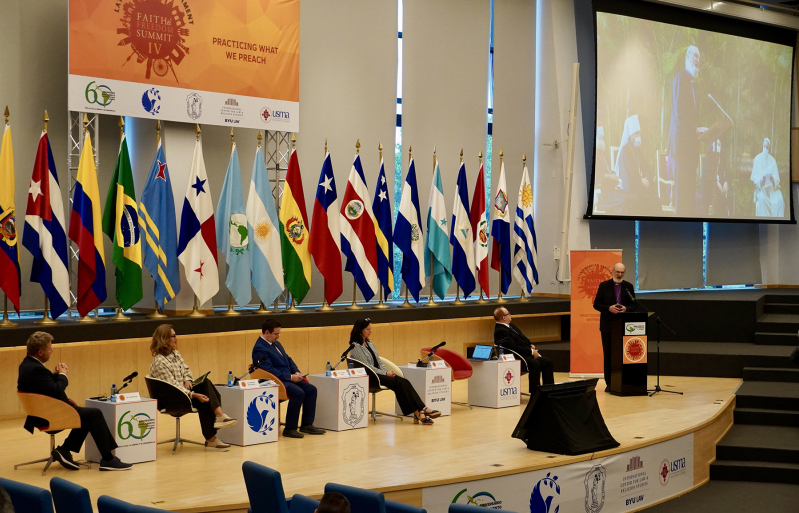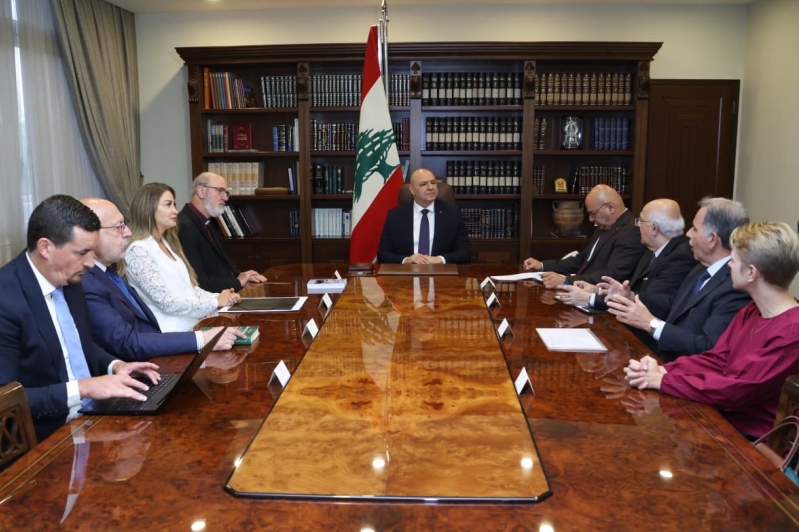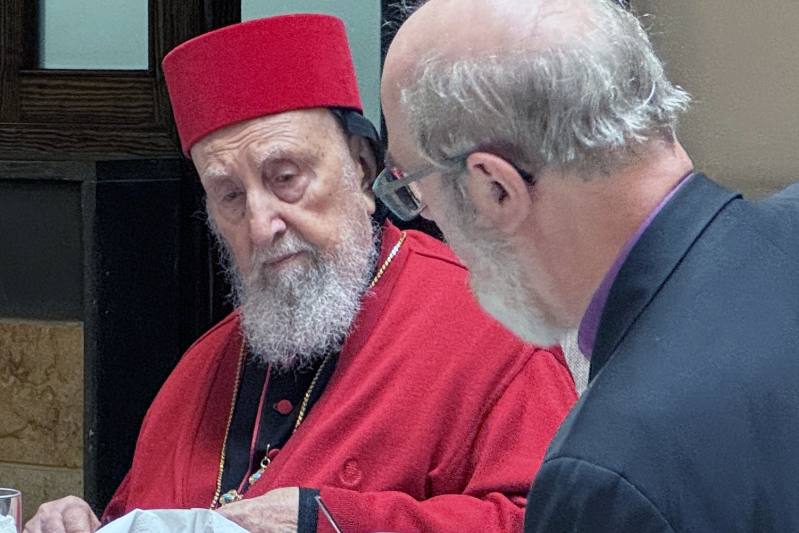
Amid rising concerns over global violations of religious freedom, former World Evangelical Alliance (WEA) Secretary General Bishop Dr. Thomas Schirrmacher has warned that major Christian networks are retreating from advocacy for the persecuted church.
In an interview with Christian Daily International following the launch of the German-language Yearbook on Religious Freedom—a joint publication by the International Society for Human Rights (ISHR) and the International Institute for Religious Freedom (IIRF)—Schirrmacher said the global church’s organized efforts in prayer and advocacy are waning.
“I cannot tell how many people pray or where global denominations stand on their convictions,” he said. “But I can see that organized prayer and advocacy work by churches and global networks, including evangelical networks, is in decline.”
He pointed to shrinking donations and a diminished sense of solidarity with persecuted Christians. “Church leaders in countries of concern tell me during my visits that they feel the interest in them is less than a decade ago—whether the Syrian Catholic Patriarch in Lebanon, evangelical leaders in Mali or Gambia, or the Syrian Orthodox Patriarch in Syria,” he added. “While major advocacy organizations and NGOs focusing on religious freedom continue to do a great job, there has been a significant decline in recent years.”
Global campaigns losing visibility
Schirrmacher highlighted several examples of this decline. Once a globally unifying initiative, the International Day of Prayer for the Persecuted Church (IDOP) “has no information on its website for 2024 or 2025,” he noted, pointing to the long-running campaign’s apparent dormancy.
“Thankfully, several NGOs are offering material for local churches for Nov. 2, 2025,” he said. “A decade ago, IDOP was a major tool for uniting the church worldwide in prayer.”
The Religious Liberty Commission of the World Evangelical Alliance, which previously played a central role in advocacy, “no longer exists,” he said. Similarly, “the World Council of Churches no longer employs any full-time staff to work on this issue.”
Schirrmacher said the Catholic Church maintains an advantage through its network of papal nuncios but has largely delegated advocacy to organizations like Aid to the Church in Need rather than coordinating efforts through the Vatican itself.
Evangelical advocacy becoming more independent
Asked whether evangelical organizations remain active, Schirrmacher acknowledged that many continue to work effectively but are becoming increasingly detached from denominational structures.
“For all, the connection to evangelical denominations is loosening and they grow into a more ecumenical network,” he said. “For example, the International Institute for Religious Freedom, of which I am honorary president, has stepped up its work considerably under the younger directors who took over from me and Christof Sauer in 2021.”
He described the IIRF as “now fully independent of any church network” and “a world leader in advocating religious freedom for all religions,” though this broader mandate “is not favored by all churches.”

He also praised the role of Christian Daily International in amplifying stories of persecution. “Information on Christian persecution events spreads around the world quicker than ever, especially through the active involvement of Christian Daily International on all continents,” he said. “However, CDI is fully independent and driven by individuals who want this topic to be on the daily agenda.”
A personal journey of recovery and renewed calling
Reflecting on his own absence from public ministry, Schirrmacher said health challenges had forced him to step back from leadership roles.
“I wrote my first booklet on persecution while I was still a student at seminary, and this topic has been a priority in my life ever since,” he said. “When I contracted Covid and developed long-term symptoms, I experienced what is known as ‘brain fog,’ and most days I was unable to interact with other people.”
He resigned as WEA Secretary General in March 2024, describing it as “too late” but necessary. “I accepted it as coming from God’s hand, thinking that I had done my part in God’s kingdom,” he said. “But I struggled with the fact that my work against persecution had come to an end.”
Specialists in California and Israel later diagnosed and treated the condition, allowing him to recover. “My strength returned and the symptoms started to vanish,” he said. “In 2025, I travelled again to meet with governments, eyewitnesses, and churches in more than 50 countries. I knew that helping the persecuted church and fighting for freedom of religion or belief had to become the number one priority in my life again.”
Yet his return to the global scene left him “shocked” by what he found. “The ecumenical consensus to combat discrimination and persecution appeared to have disappeared,” he said.

“Ecumenical consensus” lost
Schirrmacher recalled a pivotal moment of unity at the Global Christian Forum (GCF) conference in Tirana, Albania, in 2015.
“Representatives from the Vatican, the World Council of Churches, the World Evangelical Alliance, and the Pentecostal World Fellowship came together to discuss discrimination, persecution, and religious freedom,” he said. “Eyewitnesses from 50 countries were heard, and we agreed to work closely together on this issue from that point onwards.”
Ten years later, he said, “nothing has come of it. The GCF no longer addresses the issue, and there is no official collaboration on it between the four organizations behind it.”
He also pointed to the 2011 joint document Christian Witness in a Multi-Religious World, signed by the Vatican, WCC, and WEA, as a milestone that has since been neglected. “The period from 2006 to 2011 was the most inspiring time of my life,” he said. “While the Vatican and the WCC continue to emphasize its importance, the Evangelicals have more or less forgotten about it.”
Fragmented responses and “anti-ecumenical” trends
Schirrmacher attributed the decline to a growing anti-ecumenical sentiment within many church circles.
“A decade ago, it was taken for granted that martyrdom took precedence over theological disputes and that the enemies of Jesus Christ did not distinguish between churches,” he said. “Today, however, it seems that Catholics are helping Catholics, Evangelicals are helping Evangelicals, and so on.”
He noted that even Evangelicals who claim willingness to cooperate with Catholics and Orthodox believers on humanitarian issues rarely do so in practice. “There is hardly any meaningful global cooperation in advocacy other than NGOs or individuals like me bridging the gap,” he said.
“Recently, I visited the Vatican, where I was welcomed by bishops and priests from Nicaragua whom we had helped to free from prison,” he added. “For many Evangelicals, this was further evidence of my overly ecumenical stance as an Evangelical.”
He expressed hope that the Pentecostal World Fellowship might strengthen its engagement. “I am glad they are leveling things up, but I wish they would set up a proper office to work directly with governments and the media,” he said. “This is not a job for freelancers alone.”
On the ground: gratitude unspoken
Sharing insights from recent travels, Schirrmacher cited the Kurdish Autonomous Region as a positive example of a Muslim-majority area protecting religious minorities.

“We recently visited the Kurdish Autonomous Region, which has become a safe haven for many Christians and other religious minorities who have been persecuted in neighboring countries,” he said. “We met ministers, archbishops, evangelical leaders, and heads of several religions, as well as visiting refugee camps.”
Evangelical groups like Samaritan’s Purse and a dozen other humanitarian organizations are active there, he said, yet “they had never heard of the WEA, the Lausanne Movement, the Pentecostal World Fellowship, the World Council of Churches, or the Global Christian Forum.”
“I do not know of one statement of gratitude by any of those bodies concerning the Kurdish Autonomous Region,” he added.
A similar situation exists in Syria, where “World Vision, Samaritan’s Purse, Tearfund, and the ACT Alliance work with the Syrian Orthodox Church’s humanitarian arm across the whole country,” Schirrmacher said. “However, none of the government officials, opposition party leaders, or humanitarian organizations we met had ever heard of the mentioned global networks.”
A call to renew commitment
Schirrmacher said the global Church must rediscover its unity of purpose in defending the persecuted, warning that “the credibility of Christian witness” depends on it.
He concluded with a direct appeal to church leaders worldwide: “Read Christian Witness in a Multi-Religious World of 2011 and read the Message of the Tirana Consultation of 2015 (p. 95-98) —and let us once again agree to make this a priority.”







